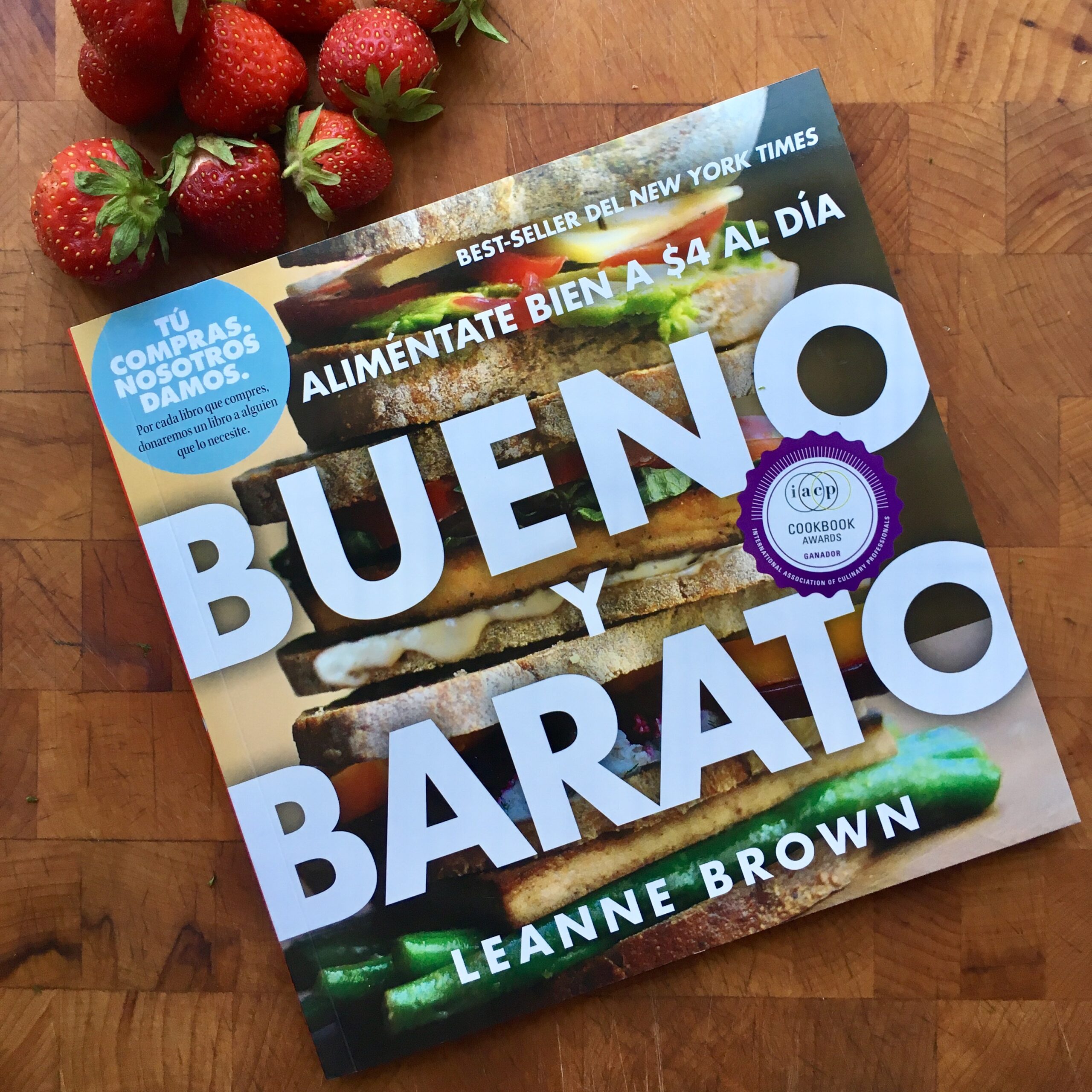Today’s post comes from Carlos Olaechea, he’s working towards a Master’s degree in Boston University’s Gastronomy program. I was personally really touched by his story, and I think it points to a lot of issues with cooking and eating for little, that we don’t talk about enough. I hope you’ll read it, think about it, and consider sharing. If anyone has a story, personal or otherwise that you would like to share, please write to me at Leanne@leannebrown.com.
I’ve never been on food stamps, but there were times when I was living on a very modest budget from my unemployment checks during the recession after I lost my job. Initially, I was buying food just for myself, but when I could no longer afford to pay rent I had to move back in with my mother, along with my 2 siblings who also lost their jobs. I had gotten a job by then, but I made less than half of what I made before the recession. At my mother’s house each sibling was responsible for a certain aspect of the household, mine was grocery shopping.
I had a budget of about $50 a week to provide food for 4 people, including myself. I would go to the Latin markets and stock up on rice, pasta, beans, root vegetables, cabbage, eggplant, and watercress. I would also get salted Pollock, eggs, and maybe some “curry chicken” (bony cut up pieces of dark meat chicken), or some high fat ground beef, or sometimes some variety meats to cook for the family. This particular grocery store had off brand deli products usually at no more than $3 a pound, so I would get ham and cheese for sandwiches. This would be our little indulgence, along with maybe some fruit punch that was on sale. I would also get Haitian bread because it was the same price as the off-brand “Wonderbread” but of much better quality (about 99 cents to $1.50 a loaf). We ate a lot of papaya when it was on sale.
Fresh milk was out of the question, as was butter. I never made Italian food because it required parmesan cheese, and even the cheap stuff was too expensive. I was lucky to be working with working class or poorer Latin American or Caribbean people who all became my friends. Even if they lived a little better than I did, some of them came from poverty in their home countries. We oftentimes exchanged recipes and talked about where there were deals. Like if we saw that plantains were 10 for $1 at Presidente or at the Ti Mache (the Creole word for the flea market), we would let our coworkers know. I also got an education on how to prepare certain vegetables, meats, and tubers that were cheaper than what I was used to.
For me, when I was on a tight food budget, every single item of food was accounted for. I didn’t just buy something because it seemed like something I may or may not enjoy. There was no room for trying new things because if it was bad, I just wasted food and money, and some of the retailers I frequented didn’t have such customer-friendly return policies as the more mainstream supermarkets. Every cup of rice, every egg, every ounce of meat, every clove of garlic had a specific purpose for a specific meal. You couldn’t just come home and decide that you wanted to make yourself a snack. Oftentimes I had to discuss with the whole family what everything was intended for so that (1) they wouldn’t eat things prematurely and (2) they would be excited by certain dishes you would be preparing later that week and therefore not eat the food prematurely. It was incredibly frustrating when a family member would decide to use something for their own snacks or to entertain friends.
It was tough for the whole family to understand that we could no longer afford to live the way we had been. And it really hurts when a family member tells you that they will not eat what you made them because it is “poor food.” The class values we assign to different foods have grave emotional and psychological consequences. As if having so little money wasn’t stressful enough, we are also made to feel ashamed of the food we ate.
I got used to shopping and cooking on a tight budget for a while, and then I finally got a better job and could afford to go to a different grocery store. It felt incredible.
I vividly recall the first time I was able to again choose what I really wanted to eat and not just what I could afford. I bought good parmesan cheese (still not grana padano, but a refrigerated store brand variety). It felt as if I was coming up for air or had a weight lifted off of me. Being a lifelong food lover, there was just this joyful feeling of being able to have freedom to choose from a varied list of cuisines and foods.
Useful Tips and Recipes
Beans are a great, inexpensive way to get a good meal. You can add some vegetables to them, potatoes or other root vegetables, and some pieces of leftover meat for flavor and added protein. A fried egg gives some extra creaminess when you serve them. And of course, with some rice, it is the quintessential cheap Latin meal.
Leftover white rice can be made way tastier by sautéing it in oil with some salt. Many people will add diced frankfurters and scrambled eggs for a complete meal. [Leanne says: I love adding frozen peas in mine!]
Evaporated milk is a great thing to have in the pantry. I still use it for cooking over fresh milk.
Another trick is to use a lot of seasonings, which you can get at dollar stores. They will last you for a long time. If you ever have extra cash, go out and get some spices. That way you can prepare something very simple but still have it taste good when you have practically no money. I’ve made dishes of just rice with seasoned potatoes that were filling and delicious because they were well seasoned.
But the biggest lesson I learned about eating good and cheap is to get inspiration from immigrant communities who have a lot of experience both in their home countries and here in America, on feeding themselves and their families inexpensively. A lot of times, you have to go a little out of your way to find cheap foods. In Boston, where I now live, there is a resale market on the weekends that sells overripe produce or produce that is about to go bad. It is filled with immigrants filling up their baskets and getting on the train to go back to their homes, sometimes an hour away.





